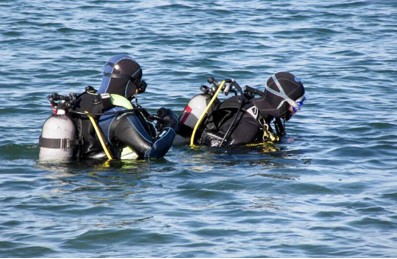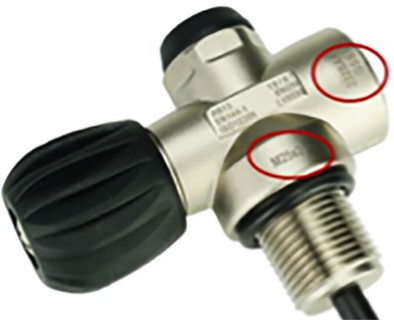Diving instructor killed – incorrect valve threads
The Dutch Labour Inspectorate (Nederlandse Arbeidesinspectie) reports an incident in which a diving instructor was killed. The incident is reported here (in Dutch).



What happened
During a dive, the valve came loose from the diving cylinder and fatally hit the diving instructor; a cylinder with internal thread G3/4 was used, which was fitted with a valve with external thread M25x2.
What was the cause
Threads on the diving cylinder and the mounted valve were incompatible. In this case, the screw thread of the valve was slightly smaller than that of the screw thread in the diving cylinder. The result was that there was an increased risk that the valve will come loose from the cylinder when at pressure.
Members are advised to follow the guidance contained within IMCA D 064 Guidance on diving cylinder and valve thread compatibility. The Dutch Labour Inspectorate (Nederlandse Arbeidesinspectie) notes that despite various (international) publications about the prevention of such incidents, these situations unfortunately continue to occur.
Members may wish to refer to:
- Pillar valve failure (2009, investigation revealed that the cylinder (Luxfur S50 brand) had an imperial thread and the pillar valve (MDE 232 bar) which failed had a metric thread)
- Diver injury during air cylinder recharging (2010, root cause was that the pillar valve had an external metric thread of M25x2 whilst the cylinder had a Whitworth imperial thread of 1 inch (25.4 mm))
- High potential Near-miss: Incompatible pillar valve assembly (2013)
- Injuries due to failure of diver’s emergency gas cylinder (2014, the inner thread on the HP cylinder was not compatible with the outer thread of the pillar valve)
- Injuries due to failure of divers emergency gas cylinder – use of incompatible threads (2016)
- Bailout cylinder and pillar valve compatibility failure (2017)
Safety Event
Published: 18 January 2023
Download: IMCA SF 03/23
IMCA Safety Flashes
Submit a Report
IMCA Safety Flashes summarise key safety matters and incidents, allowing lessons to be more easily learnt for the benefit of all. The effectiveness of the IMCA Safety Flash system depends on Members sharing information and so avoiding repeat incidents. Please consider adding [email protected] to your internal distribution list for safety alerts or manually submitting information on incidents you consider may be relevant. All information is anonymised or sanitised, as appropriate.
IMCA’s store terms and conditions (https://www.imca-int.com/legal-notices/terms/) apply to all downloads from IMCA’s website, including this document.
IMCA makes every effort to ensure the accuracy and reliability of the data contained in the documents it publishes, but IMCA shall not be liable for any guidance and/or recommendation and/or statement herein contained. The information contained in this document does not fulfil or replace any individual’s or Member's legal, regulatory or other duties or obligations in respect of their operations. Individuals and Members remain solely responsible for the safe, lawful and proper conduct of their operations.
